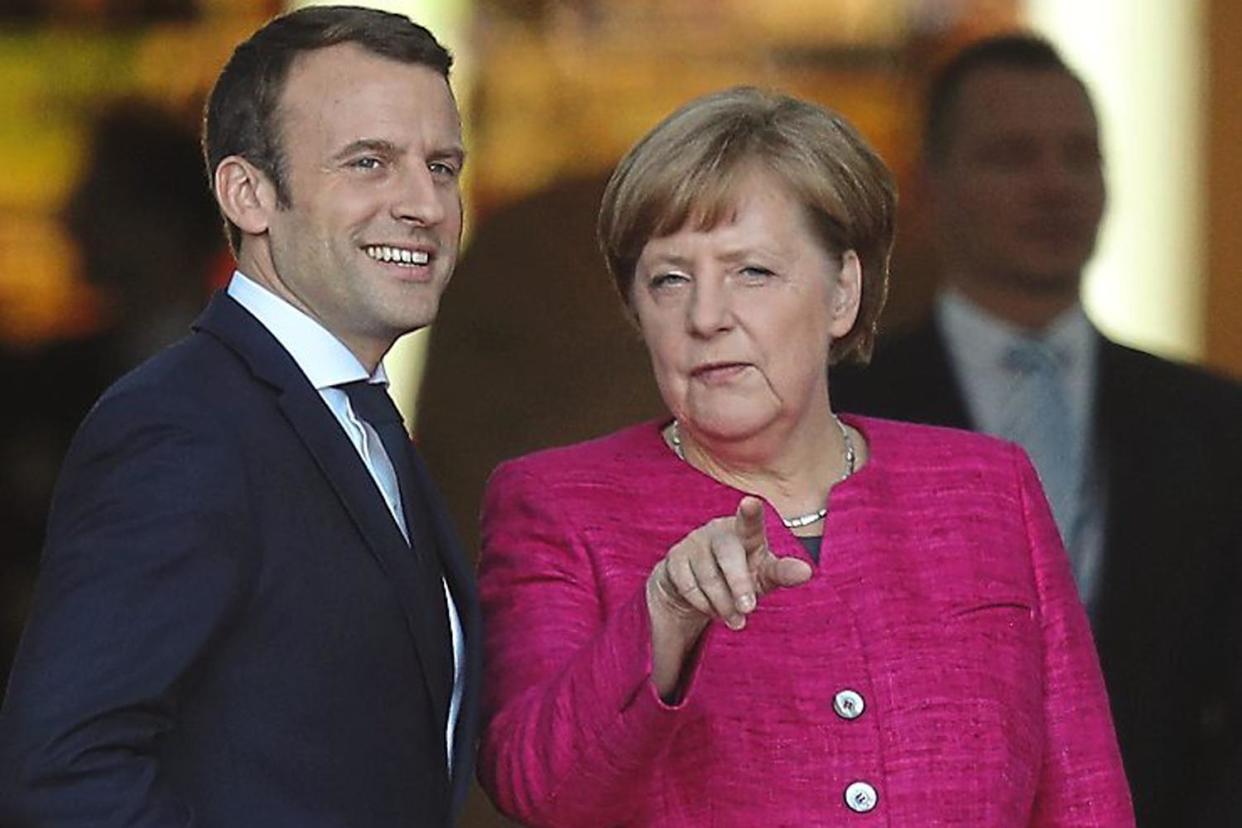Matthew d'Ancona: Brussels will squeeze us till the pips squeak. What do we expect?

Who gets custody of Nigel Farage? That’s what I want to know. I don’t see why Britain should take him: he has, after all, been an MEP since 1999. But, in the divorce talks with the EU, matters of this sort are of secondary importance when compared with what really counts in all such sunderings. Which is money.
“Twenty billion is peanuts”: so the European Parliament’s president, Antonio Tajani, told the BBC’s Evan Davis on last night’s Newsnight. And when you consider that the EU is committed to spending €960 billion over the period 2014-20 and has liabilities of more than €238 billion, I suppose such a sum might seem like small change.
At a dinner in Brussels tomorrow night, Theresa May will spell out the British plan for Brexit to her 27 EU counterparts. On Friday, they will discuss that plan in her absence. There is guarded hope in No 10 that the gathering may yield a bit more than deadlock, if not quite a breakthrough.
This week’s recognition by the EU Commission president, Jean-Claude Juncker, that the negotiations should “accelerate” has naturally encouraged this batsqueak of optimism. It is possible that the EU-27 will, in the words of the draft communiqué, authorise “internal preparatory discussions” on a future trade deal with Britain. But even this comparatively minor concession depends upon our partners accepting that sufficient progress has been made in three areas.
First, there is the question of EU nationals living here and the precise jurisdiction to which they will be subject after Britain’s departure. Second, much rests on the vexed question of the border between Northern and Southern Ireland. If ever there was a special case, this is it: to allow the literalism of the Brexiteers to jeopardise the Good Friday Agreement would be an act of unconscionable vandalism.
Third, and most important by far, is the question of cash, and how much our soon-to-be-ex-partners will demand before allowing the stalled talks to proceed to the terms of the new deal. May offers something in the region of €20 billion. There is scornful laughter in Brussels, where €60 billion is regarded as a reasonable minimum.
On both sides, the figures are presented as precise calculations but they are nothing of the sort. This is haggling, pure and simple. It has more to do with politics and face than statistical justice. The PM cannot be seen to be fleeced. Her EU counterparts want a final sum that can be presented as sufficiently punitive to their respective electorates.
The spanner in the works has been the disinclination of Angela Merkel and, to a lesser extent, Emmanuel Macron to speed things along. The German Chancellor may have been secured a record fourth term, but her domestic position does not give her much scope for magnanimity towards Britain. No 10 had counted on appreciable assistance from Berlin and has been weakened by its withdrawal.
David Davis was right yesterday to remark upon the lethal connection between the ticking of the clock and the hovering of the EU waiter with the bill. “They are using time pressure to get more money out of us,” the Brexit Secretary told MPs. “That is what’s going on. It’s obvious to everybody.”
It is indeed. On the Continent, they see a Government that insists it is united behind the PM’s speech in Florence last month but does little to justify the claim. Yesterday Amber Rudd said it was “unthinkable there would be no deal” — while Davis maintained that the thinkability of such an outcome remained an essential deterrent.
The sparring between Boris Johnson and Philip Hammond over Brexit has become a spectator sport for the rest of the EU. It does not help May in the great poker game that her own Cabinet colleagues are peering over her shoulder and muttering acrimoniously to one another about the strength of her hand.
This is haggling, pure and simple. It has more to do with politics and face than statistical justice
Matthew d'Ancona
Add to this the sudden onslaught of analysis from all quarters, warning of economic trouble ahead. The Resolution Foundation claims that a “no-deal” Brexit would cost the average UK household £260 a year. Xavier Rolet, chief executive of the London Stock Exchange Group, warns in the Telegraph that firms will relocate abroad unless serious diplomatic progress is made by the end of the year. Most significantly, the OECD — adopting a new, more proactive strategy — predicts adversity for the British economy and urges a second referendum as a means of averting the pain.
All of this pressure helps the EU-27 to set the price for divorce. They know how badly Britain needs to get beyond the initial phase to negotiations about the future. And they know that — sooner or later, in phases or all at once — we will pay up.
I am reminded of a vignette in Philip Roth’s Portnoy’s Complaint, in which Portnoy’s cousin Heshie falls for a Polish drum majorette and is outraged by his family’s opposition to the match. In the end, Uncle Hymie meets the girl by a lake and cuts a deal. “He drew from his pocket an envelope containing five 20-dollar bills. And dumb, frightened Alice Dembosky took it. Thus proving something that everybody but Heshie (and I) had surmised about the Polack from the beginning: that her plan was to take Heshie for all his father’s money, and then ruin his life.”
Like Alice, the EU plans to take our money and (up to a point) ruin our lives. How could it be otherwise? It is axiomatic for Brussels that Brexit must be a cautionary tale, not a liberation, a warning to others, not an inspiration. The plan is quite simple: to squeeze us till the pips squeak — and then some.

 Yahoo News
Yahoo News 
